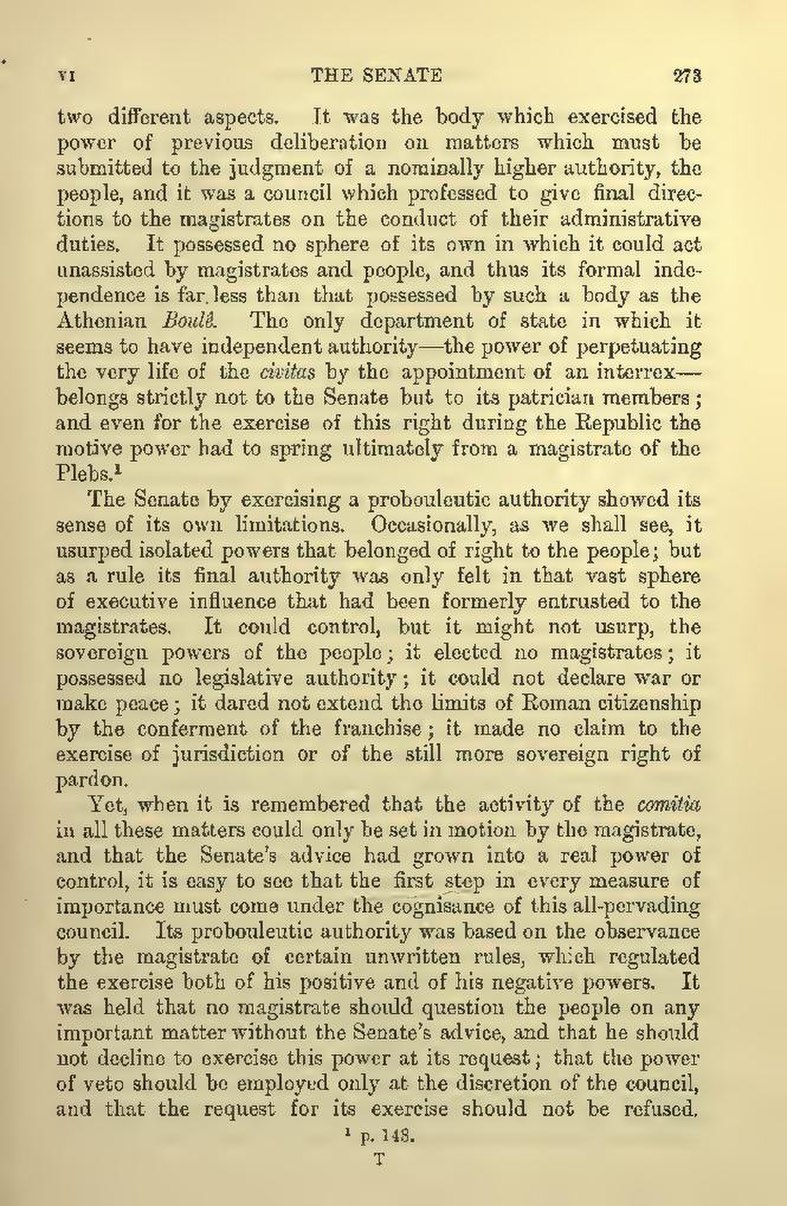two different aspects. It was the body which exercised the power of previous deliberation on matters which must be submitted to the judgment of a nominally higher authority, the people, and it was a council which professed to give final directions to the magistrates on the conduct of their administrative duties. It possessed no sphere of its own in which it could act unassisted by magistrates and people, and thus its formal independence is far less than that possessed by such a body as the Athenian Boulê. The only department of state in which it seems to have independent authority—the power of perpetuating the very life of the civitas by the appointment of an interrex—belongs strictly not to the Senate but to its patrician members; and even for the exercise of this right during the Republic the motive power had to spring ultimately from a magistrate of the Plebs.[1]
The Senate by exercising a probouleutic authority showed its sense of its own limitations. Occasionally, as we shall see, it usurped isolated powers that belonged of right to the people; but as a rule its final authority was only felt in that vast sphere of executive influence that had been formerly entrusted to the magistrates. It could control, but it might not usurp, the sovereign powers of the people; it elected no magistrates; it possessed no legislative authority; it could not declare war or make peace; it dared not extend the limits of Roman citizenship by the conferment of the franchise; it made no claim to the exercise of jurisdiction or of the still more sovereign right of pardon.
Yet, when it is remembered that the activity of the comitia in all these matters could only be set in motion by the magistrate, and that the Senate's advice had grown into a real power of control, it is easy to see that the first step in every measure of importance must come under the cognisance of this all-pervading council. Its probouleutic authority was based on the observance by the magistrate of certain unwritten rules, which regulated the exercise both of his positive and of his negative powers. It was held that no magistrate should question the people on any important matter without the Senate's advice, and that he should not decline to exercise this power at its request; that the power of veto should be employed only at the discretion of the council, and that the request for its exercise should not be refused.
- ↑ p. 148.
